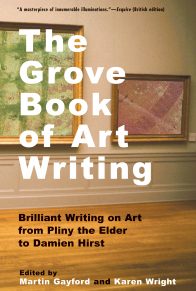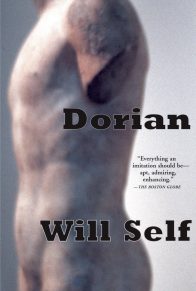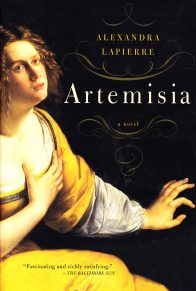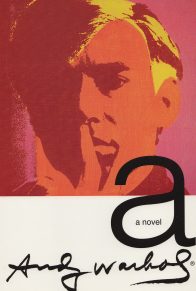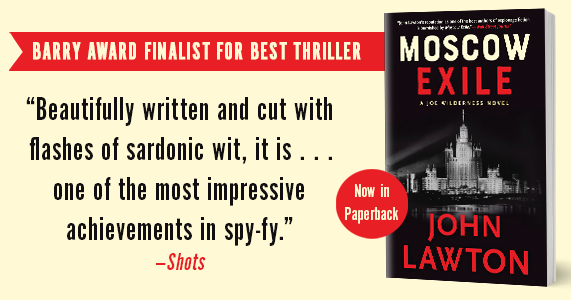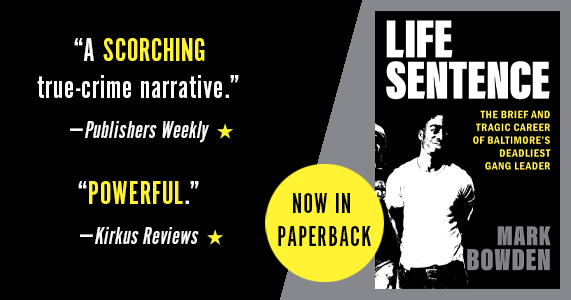As I started west along the New Road, I suddenly saw it, as I have never seen it before, as a scene from hell: the clatter of the horses; the stench of their ordure; a crossing-sweeper nearly knocked down by a brushmaker’s wagon; a woman crying ‘stunning oranges!”, yet so drearily you could tell she had lost all hope of selling her handful of pitifully wizened fruit, and so providing something for her child’s supper; a boy turning carter-wheels, and the men on the roof of an omnibus tossing halfpennies and farthings at him, and then guffawing as he fell into the gutter. And everywhere a yellow, choking haze, so thick that, even in the middle of the morning, you could not see more than fifty paces. And all the while a stream of tilers’ carts and brick merchants’ drays rattling by with provisions for the armies of new houses which daily carry this new Babylon still further into the lanes and meadows of Middlesex. Even as I rejoiced that you and the children would soon be breathing purer air and seeing lovelier sights, I felt myself alone and trapped inside some great engine from which all beauty, all joy and colour and mystery, had been banished.
This feeling so oppressed me that I quickly turned off and started to zig-zag through the maze of little streets and alleys to the west of Tottenham Court Road. My principle was simple enough: so long as I continued a certain distance west, and then a certain distance south, I must eventually come to Oxford Street, and avoid getting badly lost. And so it was that I crossed Portland Place (where, all those years ago, my journey to you so improbably began), entered a mean, dusty little court hung with dripping laundry that was already smudged with soot, and suddenly emerged into a street of handsome old-fashioned houses that seemed oddly familiar. But it was not the familiarity of everyday: rather the ghostly brilliance of some long-lost childish memory, or of something glimpsed once in a dream. I stood for perhaps two minutes, surveying the line of dark windows and blackened brickwork and heavy brass-handled doors. When and why had I seen them before? What was the original, of which they were such a plangent echo? Try as I might, I could not find it. All I noted was that my mind seemed somehow to associate it with feelings of powerlessness and smallness and a kind of awe.
Still musing, I set off again. After fifty yards or so I noticed a boy of eight or nine skulking in the area of one of the houses. His cap was too large for him and his jacket too small, and he wore an odd pair of boots, one black and one brown. As I turned towards him, he shrank back against the damp wall and looked up at me with the terrified stare of a cornered animal. As much to allay his fear as to satisfy my own curiosity, I called down to him:
“What street is this?”
“Queen Anne Street,” he replied.
I was none the wiser: I recognized the name, but could not recall anyone I knew ever having lived there. I took a penny from my pocket and held out my hand.
“Thank you,” I said.
He cowered like a dog, torn between hunger for a scrap of meat and dread of being kicked.
“It’s all right,” I said. “I won’t hurt you.”
He hesitated a moment, before scuttling up the steps and taking the coin. Then, instead of running off as I had expected, he gazed wonderingly at me, as if even so small an act of kindness lay entirely beyond his knowledge and understanding of life. His eyes, I saw, were unhealthily large, and the pale skin was drawn into the hollows of his cheeks, as if age could not wait to put its mark upon him. And suddenly I thought of little Walter, and of the horror I should feel if I looked into his face and saw there such a world of want and pain and sickness. So I gave the boy sixpence more, and without a word he was gone, as if he feared that in another moment the spell would break, and the natural order of things would reassert itself, and I would change my mind and take the money back again.
And that is my coincidence. I already hear you saying: “Walter! I see no coincidence”; but you shall, my love, I promise, if only you will be patient and read on.
I was in Brompton Grove again by three minutes to twelve. It was a sombre homecoming. The small things that spoke of our happy life here together looked already out of place, like a doll or a bonnet washed up on a beach. In the few brief hours since we’d left, the house had been occupied by an alien spirit, which now resented the return of the previous tenant. Whenever I entered a room, I seemed to feel its presence, like a silent wind, propelling me back towards the door.
Marian was still out, and only the distant murmur of the Davidsons’ voices in the kitchen told me I was not entirely alone. I felt as lost and mopish as a child. I tried to draw, but could not settle to it. After ten minutes I laid aside my pencil and took up a book, only to set it down again ten minutes later. The lunch bell promised a welcome diversion, until I found myself sitting in solitary state in the dining room like an oriental despot, with Davidson hovering near as if I might need help raising the fork to my mouth. I sent him away, saying I could take care of myself and would ring if I needed anything, and then kept the poor fellow running up and down stairs with my demands for fresh water and more mustard.
When I had finished, I went into the garden, where the workmen were marking the foundations for the new studio, and solemnly reiterated all manner of things – that I must have a north light, that the entrance must be sheltered from the weather – that they knew perfectly well already from the plans. And it was here that Marian found me when she came home, and saved them from me, and me from myself.
“You cannot possibly come like that!” were her first words, delivered in such a forthright tone that the three workmen started. But she was smiling, and her black eyes shone. “You look like a man who has walked across half London.”
“Come where?” I said.
“Why, to Lady Eastlake’s,” she said, more quietly, drawing me towards the house. ‘she was at the exhibition this morning, and afterwards I had lunch with her, and we talked of Laura’s going away today, and my staying. And so, by a natural progression, of you.” She took my arm, and led me indoors. “And she asked most particularly that I should bring you to meet her this afternoon.”
I was immediately struck by the notion that this might have something to do with my painting: Sir Charles is, after all, Director of the National Gallery, and I confess that for a wild moment I imagined him emerging from behind a screen in his wife’s drawing room and saying: “Ah, Hartright, I much admired The Artist’s Wife and Children at Limmeridge, in Cumberland at the Academy this year, and would like to buy it for the nation.” I soon recognized this pitiable fantasy for what it was, however, and concluded that Marian, as good and kind as ever, was merely hoping to distract me from my separation by introducing me to one of her blue-stocking friends.
As it turned out, neither explanation was remotely as strange as the truth.
Has Marian ever described the Eastlakes’ house to you? It’s too late now for me to ask her (after midnight, and she must be asleep) – so, if she has, simply pass over the next paragraph.
They live in one of those fine old stone houses in Fitzroy Square (here and there on the walls you can still see patches of the original honey gold peering through the grime), with lofty windows and a front door big enough to take a horse. As we arrived, a fashionably dressed woman in a fur-trimmed jacket and a tiny pill-box hat garnished with feathers flounced down the steps (in so far as you can flounce when you are imprisoned from the waist down in a giant birdcage) and into a waiting carriage. There were angry spots on her cheeks, and she barely acknowledged us as we passed.
The front door was opened by a tall footman with grey hair and thick dark eyebrows. Marian addressed him with a natural ease which surprised me.
“Good afternoon, Stokes. Is your mistress at home?”
‘she is, ma”am.” He led us through a wide hall lined with marble busts and upstairs to a large drawing room. It was furnished in the modern style, with a heavy Turkey carpet, a set of carved oak chairs, and rows of watercolours jammed together on the green walls like carriages in Piccadilly. Above the picture-rail ran a line of Japanese plates (really made in Japan, I fancy, and not in Stafford!), and over the fireplace was a large classical landscape which, from its treaclish colouring, I took to be one of Sir Charles’s own.
As we entered, a strikingly tall woman rose from a chaise longue in the window. For a moment she was held in silhouette by the evening light, and the only distinctive feature I could make out was her head, which tilted oddly to one side, like a bird’s. As she came towards us, however, I saw that she was about fifty, wearing a soft green dress edged with braid, and with her still-dark hair pulled simply back into a net. She had a wide, uneven mouth that broke into a frank smile as she held out her hand.
‘marian,” she said. “You must have winged feet.” Her voice was soft but clear, and I thought I detected a trace of a Scotch accent. She turned to the footman. “Thank you, Stokes. If anyone else should call, I am not at home.” She touched Marian’s hand and smiled sidelong at me. ‘did you have to rope him, and drag him to a cab, to make him come?”
Marian laughed. “Lady Eastlake, this is my brother – well, my half-brother-in-law – Walter Hartright.”
“Half in-law,” said Lady Eastlake, laughing. “How very complicated. I’m delighted to see you, Mr. Hartright. How do you do?” As we shook hands, she glanced about her, as if suddenly dissatisfied with where she was. “I think we’ll be more comfortable in my boudoir” – she gave the word an ironic inflection which made Marian laugh – “if you will forgive the clutter.”
She walked to the back of the room and threw open a pair of folding doors. Beyond them lay a light, pleasant, informal parlour, with a tall window overlooking the garden. The immediate impression was more that of an Oxford don’s study than of a lady’s sitting room. A range of bookcases, some crammed with books, others with what appeared simply to be stacks of papers, ran along the walls. In the corner was a bureau, the lid wedged half open by a cascade of notes and letters; on each side of the fireplace stood a large cabinet containing rocks, shells, pieces of broken pottery and half an Etruscan head; while in the centre (strangest of all) was a large mahogany table, entirely covered with more photographs than I have ever seen together in one place in my life. Despite myself, I could not stop my eyes straying across them in search of a unifying theme or a familiar image. In the first I failed, for the subjects seemed as various as life itself – portraits, a country cottage, a great mill veiled by the smoke from its own black chimney – but in the second I was successful, for there, between a haystack and a blurred carthorse, I quickly recognized a picture of Lady Eastlake herself.
She must have been watching me, for as I stooped to look at it more closely she said sharply:
“Well, Mr. Hartright, what do you think?”
“It is a fair likeness,” I said, equivocally; for I feared that, like so many people, she might resent the camera’s merciless exposure of every blot and blemish, and feel it did her beauty less than justice.
“I mean”, she said, “about photography.”
“Well”,” I began. I did not know how to go on, for, truth to tell, it is not something to which I have given much thought at all; but I did not wish to cause offence, either by seeming too cool, or by too warmly offering an opinion that might differ from her own. She spared me by continuing:
‘do you practise yourself?”
“No,” I replied. “I still prefer pencil and brush.”
“And why is that, Mr. Hartright?”
This inquisition was so far from what I had expected that I was forced to consider for a moment. At length I said:
“Because it seems to me that photography can merely record facts.”
She gave me not an instant’s respite. “Whereas your pencil”?”
“Whereas a pencil should, I hope – in the right hands – be able to hint at the truth. Which is not perhaps the same thing.”
She fixed me with an inscrutable stare, from which I could not judge whether she thought me mad, dull, or fascinatingly original. Then she opened the bureau gingerly, to prevent the overflowing papers from spilling on to the floor, and took out a small notebook and pencil. ‘do you mind if I make a note of that?” she said, already writing. “I am doing an article.”
‘so,” said Marian, with a teasing familiarity, which again took me by surprise, “prepare to see your words in the next issue of the Quarterly Review.”
Lady Eastlake laughed. “Not unacknowledged,” she said. “Whatever else I am, I am not a pickpocket. Besides, what makes you suppose I should want to claim Mr. Hartright’s thoughts as my own?”
She put the notebook away and sat in an armchair by the fireplace, gesturing Marian to the seat next to her. She sighed, shut her eyes and sank back, in a dumbshow of tiredness. I wondered if this were some further comment on what I had said, and, despite myself, felt the heat rising to my cheeks.
“Forgive me,” said Lady Eastlake. “I’ve just had to endure a duty call from Mrs. Madison. Did you see her as you came in?”
“There was a lady leaving,” said Marian.
‘she can only have been here for a quarter of an hour, but it felt like three days. My stock of conversation on children’s clothes is soon exhausted, I’m afraid. I did try venturing on to the weather, but even that turned out too mettlesome for her.”
Stokes entered, carrying a tea tray. He set it down on a low table by Lady Eastlake’s chair. She watched warily, her head cocked, until he was out of sight again; then she went on, more quietly:
‘she’s one of those women who believe that a member of her own sex should have no views on anything. And certainly never read a book. In which, I must say, she sets a splendid example.”
Marian laughed. Lady Eastlake started to pour the tea, then put the pot down and touched Marian’s arm. “That’s why I so enjoy your sister’s company, Mr. Hartright. Someone to keep pace with me. She always has something fresh and interesting to say, no matter where my runaway mind has led me.”
“I know how deeply she values your friendship, Lady East-lake,” I said. “I’m afraid that in our house she must often feel the want of an intellectual companion.”
“Oh, that’s not true, Walter!” burst in Marian.
“It is not what she tells me,” said Lady Eastlake. “You write, do you not, Mr. Hartright?”
I had just handed Marian a cup and was leaning down to take one myself. Lady Eastlake’s face was barely two feet from my own, and I felt the full power of her steady gaze. Again, it was impossible to avoid the sense that I was being interrogated – although to what purpose I could not begin to imagine.
“I have written a book,” I replied. “But it is no more than the history of a conspiracy against my wife, which my own experience qualified me to narrate. Perhaps it would be truer to call me a chronicler than a writer.”
Lady Eastlake nodded.
“Or even an editor,” I went on. “For, wherever possible, I told the story through the words of those who were closest to the events described, and thus best able to give a true account of them. Including Marian, whose journal was an invaluable source of information.”
I glanced at Marian. I had expected her to gainsay me: What nonsense, Walter: you are far too modest. Instead, she was watching me intently, her dark complexion flushed with excitement. As I turned back to Lady Eastlake, I saw, out of the corner of my eye, the table laden with photographs.
“You could say”, I continued, “that I aspire to art in my painting. Whereas “”
“Whereas in writing,” said Lady Eastlake, “you are a camera, perhaps?”
“Exactly,” I said. I was taken aback, both by her acuity and by her rudeness in interrupting me. I looked again at Marian: she was smiling at Lady Eastlake, as if to say: There, I told you so. The idea that there might be some secret understanding between them, of which I was the unwitting object, unsettled me.
‘may I ask”, I said (with, I own, a certain iciness), “if this is tending towards some end?”
Lady Eastlake did not answer at once. She exchanged another furtive glance with Marian, then took a handkerchief from her sleeve and carefully smoothed it on her lap. At length she cleared her throat and said:
‘mr. Hartright, would you mind closing the doors?”
I did so. She went on:
“I would not, of course, expect you to keep anything from your wife; but I must begin by asking that you do not mention this conversation to anyone else.”
I felt I could not accept this condition without knowing more, but was hard put to find a delicate way of saying so. She must have seen what was in my mind; for she said:
“Och, you needn’t worry about your honour, Mr. Hartright. I’m not going to confess to a murder, or the theft of a child. Besides, your sister’s presence in this room should give you assurance enough.”
I felt the justice of this, and nodded. She continued:
‘my only concern is to protect my husband. His position – which God knows he never sought – is difficult enough already, and the last thing I want to do is stir up a hornets’ nest around his poor head.”
‘very well,” I said.
“Thank you.” She looked warily towards the door, and when she spoke it was in little more than a whisper. ‘do you by any chance know a man called Thornbury?”
“No,” I replied. “Who is he?”
“A journalist,” she said. “And, I fear, an utter scoundrel.”
“That is not surprising,” I said. “A cynic might say that, to be the one, it is almost a requirement to be the other.”
Lady Eastlake laughed. “I have not myself met him,” she said, “but, so far as I have been able to learn from my friends, he is intent – for no other reason than to sell the wretched book he is writing – on slandering a poor, misunderstood body who can no longer defend himself. And the result, I’m afraid, will be a serious injury, not only to the memory of one man, but to England herself, and to English art. For his subject was – in my view, and the view of many others – the foremost genius of our age.”
And it was then, with the force of a sprung trap, that the image of Queen Anne Street re-entered my mind, and, in the same instant, I knew why it was familiar. For a moment I was a boy of eight again, and sitting in a cab next to my poor father; the winter cold turned our breath to steam, and I huddled close to him, for in his thick coat he was an island of warmth and safety. As we jolted past a tall house with dirty windows and a heavy front door, he laid his gloved hand on mine and pointed out of the window. “Look, Walter,” he said. “That is 47 Queen Anne Street. Where the foremost genius of our age lives.”
And now, in the space of six hours, I had walked down the same street and heard the same phrase again for the first time in thirty years. Without stopping to consider, I said to Lady East-lake: ‘do you mean Turner?”
It was her turn to be astonished. She stared at me, her mouth half open, then looked at Marian. “Have you “?”
Marian was equally perplexed. “No,” she said. “I said nothing. Walter, how did you “?”
I confess I was tempted to confound them further by pretending to some mysterious knowledge, but I merely said: “Oh, it was just a guess.” And then, to forestall more questions (for both of them still looked puzzled), I went on: ‘so is Mr. Thornbury writing Turner’s biography?”
“That is what he claims.”
“But if you have never met him,” I said, “how do you know it is defamatory?”
“I have been following his progress, Mr. Hartright – with, I have to say, a sinking heart. A few of those closest to Turner have, wisely, refused to speak to him at all. Of the rest, he appears to have given most credence to a gang of malicious gossips, most of whom scarcely knew the man. And they, as is the way with these things, have in turn referred him to more of their own kind.”
I must own that my first thought was the old adage: There’s no smoke without fire. Perhaps she saw my scepticism, for she went on:
“No man as eminent as Turner could avoid making enemies among those less successful or less gifted than himself – particularly a man with such a thoroughgoing disdain of flattery and convention. You’ve probably heard all manner of stories about him yourself.”
Her raised eyebrow seemed to demand an answer, but I said nothing, for – beyond a few hoary old anecdotes about his meanness, and his garbled speech, that are common currency at the Academy – in reality I was shamefully ignorant about him. She waited a moment, and then continued:
“He was, it cannot be denied, an odd, perverse, eccentric little creature, but he was not a monster, and he deserves better than to be commemorated by tittle-tattle.” She leaned confidentially towards me. “I came to know him well in his last years. Indeed” – here her voice grew unsteady, and her eyes glittered with tears – “I am told that as he lay dying he called my name. Which I cannot but feel as a charge upon me. To try to protect his memory.” She hastily dried her eyes, then clenched her handkerchief into a ball. ‘mr. Hartright, what I am asking .. . what I am suggesting ” is that you might yourself consider undertaking to write a Life of J. M. W. Turner.”
For perhaps three seconds I was, literally, speechless with astonishment. A thousand questions crowded into my head, and then flew off again before I could find words to express them. I was conscious of Marian’s gaze upon me – watchful, anxious, almost pleading – and the sense that her hopes and happiness were, in some way I could not yet fathom, bound up with my reply, only confused me further. Perhaps Lady Eastlake mistook my perplexity for calculation, for she said:
“I have spoken to a publisher I know, and am assured that there would be a ready market for such a book “”
“That is not my concern. I –”
“And I’m sure I speak for all of Turner’s friends when I say we should be happy to underwrite it”” She broke off, suddenly noting that I was following another train of thought. “What?” she said. “You think there must be others better placed?”
I nodded. “What about yourself, for instance?”
“As I explained, my connection to Sir Charles . . . Besides, there are many doors closed to a woman that a man may pass through easily and freely.”
“I cannot believe –” I began.
“What you must understand, Mr. Hartright, is that poor Turner died a recluse,” said Lady Eastlake. ‘most of those who knew him well are long dead. Of those who are still alive, Mr. Ruskin would seem to be the natural choice, but he” – here she smiled slightly – “is too Olympian to contemplate it. My situation you already know. And as for my husband – well, it’s entirely out of the question, I’m afraid.”
“Oh, I can quite see that,” I said. “But –”
She appeared not to have heard me.
“Both Mrs. Booth, Turner’s housekeeper, and his friend George Jones are good-hearted people, but”” She paused, and shook her head. “Well, frankly, neither of them is equal to it. And Mr. Jones, I believe, in any case now spends most of his time dressing up as the Duke of Wellington. At best, they might both furnish you with useful memoirs.”
She paused, and again I found myself at a loss for words. It was Marian who broke the silence:
“There is no-one else, Walter. If you won’t do it, Thornbury will carry the day unopposed.”
“And do not underestimate yourself, Mr. Hartright,” said Lady Eastlake. “Unlike Thornbury, you are an artist, who will understand the painter in Turner . . .”
I cried – I could not stop myself – “You cannot compare -!”
“He may have been a general, and you – forgive me – only a colonel,” replied Lady Eastlake. “But all artists belong to the same regiment, and fight the same battles, and crave the same victory. And then”, she went on, before I could protest further, “you are also, by your own admission, a chronicler, who knows how to gather and evaluate and compile the accounts of different witnesses.”
“And a crusader, who has already proven his determination to right a great wrong,” said Marian.
Lady Eastlake nodded. “Who could be more ideal?”
They were quiet then, leaving me to ponder what they had said. I tried, again, to impose some order on my own jangled thoughts, but they all – save one, which rang through my head with the clarity of a bell – remained in turmoil. At length Marian said:
“This is all so unexpected for poor Walter that I think we must allow him some time to consider his response.”
“Yes, of course,” said Lady Eastlake.
And so we left it. No more mention of the idea was made, and, after exchanging the usual pleasantries for a few minutes, Marian and I rose to go. Only as Stokes ushered us from the room did Lady Eastlake say:
“I may expect to hear from you soon, I hope, Mr. Hartright?”
*
We barely spoke on the way home. I was still trying to marshal my own thoughts, which were all of you and the children, and of how our lives would change if I accepted Lady Eastlake’s strange proposal; but I was constantly deflected by waves of wild emotion – dread, and a kind of dizzy exhilaration, in about equal measure – which I could not trace confidently to their source, but which seemed to gush unbidden from some hidden spring in my mind.
Marian, for her part, was uncharacteristically constrained. I thought little of it at the time, beyond merely remarking the fact; but now I think she must have taken my silence to mean that I was angry; for when we were back in our own drawing room, and had shut the door, she laid a hand lightly on my arm and said:
“I do hope, Walter, that you don’t think I did wrong.”
“What,” I said, “to invite me to Lady Eastlake’s?”
“Not that,” she said. “But to invite you without telling you the reason. She insisted that you should know nothing until she had met you, and could decide for herself whether you would be suitable. But when I saw you sitting there, so bewildered, it made me feel a traitor. Or, rather, made me feel that you would think me a traitor.”
Poor Marian! “I was taken aback, I must own,” I said. “But I never suspected you of treachery, or doubted that you had my best interests at heart.”
“I’m glad.” She was silent for a moment, looking down at her bag and toying with the string. Then, as if she had decided at last to say something that had long been on her mind, she burst out: ‘may we talk frankly, Walter?”
“Nothing I have ever known could prevent you talking frankly, once you were set on it,” I said. “And I’m quite certain that it lies beyond my power to stop you.”
She laughed, and her voice had regained some of its old gaiety as she replied: “I said “we”, not “I”.”
‘very well,” I said.
We sat together on the sofa. It was dusk, but neither of us suggested lighting the gas. Perhaps we both felt that it would be easier to open our hearts if our faces, at least, were veiled by the deepening gloom. At length she said:
‘many years ago I told you that we should always be friends, Walter, did I not?”
“Yes,” I said, taking her hand. “And so we shall.”
“I hope so,” she said. “At any rate, that is the spirit in which I now speak. You may think me impertinent; but please believe that I am prompted only by sisterly love for you and Laura.”
“Of course I believe it,” I said. “I’ve never been surer of anything in my life.” And nor had I; but, notwithstanding, I waited with trepidation to hear what she would say next. A whole army of butterflies seemed to have taken up residence in my stomach, and my legs were so leaden that, if Davidson had rushed in at that moment shouting “Fire! Fire!”, I doubt whether they would have carried me to the door.
“Thank you,” said Marian. She breathed deeply, then went on: “You know that, living as close together as we do, we cannot help noticing the smallest changes in each other’s moods?”
“Yes,” I said.
“Well,” she said, ‘recently I think I have noticed such a change in you. You have become restless, and distracted. You paint and draw less than you did. And, while you are still as loving a husband and father and brother as ever, I sometimes think it is with a greater effort than previously. As if ” as if you have to bring yourself back from some other place in order to be with us.”
“It’s difficult for me to paint here,” I said, “until the studio is finished. And I have, as you know, been very taken up with planning it, and overseeing the work.”
“The want of a studio never stopped you painting before,” she said. “And you may, I think, safely leave building it to the workmen. They do not require you to go out twenty times a day and tell them their job.”
I remembered where she had found me that afternoon, and was glad the darkness hid my blushes.
“No,” she went on, “we must look for a deeper cause. And I think I know what it is.”
I need not burden you
I wish I could spare you what she said next; for it must inevitably hurt you, and make you think worse of me. But it is the truth, and you must know it – else you will cease to know me.
‘dear Walter,” she said, in a quieter, tenderer voice. “You are the victim of your own sensitive nature. No-one else, knowing all the circumstances, could possibly accuse you of having benefited improperly from marrying Laura, and sharing the fortune which eventually became hers. Yet that, if I am right, is the charge with which you torment yourself. You know that your conduct has always been beyond reproach, and that you have brought her more happiness than she ever knew in her life. And yet, and yet, and yet.. . You still harbour the faint suspicion that you have somehow become a pensioner, and it is an agony to you.”
I opened my mouth to speak; but, in truth, I could not find the strength to deny it. In a moment, she had cast a light into some dark corner of my being and found a canker to which, until now, I had been unable to give a name.
“Worse still,” she continued, “you feel a certain vacancy at the centre of your life. You have everything that, in the eyes of the world, should make a man happy: a gentle and loving wife, two beautiful children, a fine estate, and the regard of your brother artists. Yet something is lacking: a cause capable of stirring your soul, and carrying you beyond the concerns of family and home.”
I nodded, and I think she must have seen me; for I felt her hand tightening on mine. “It is nothing to be ashamed of,” she said. “It is just that, like all noble natures, you know that family and home themselves are meaningless, unless they stand in relation to some greater purpose.”
Outside, a wagon squealed and rumbled across the cobbles. I clutched at the sound gratefully, and wrapped it about me like a cloak; for my eyes were full of tears.
“For months,” said Marian, “I have been looking for some way to relieve you. And that is why my heart leapt when Lady East-lake told me of her anguish over Turner’s life, for here at last, it seemed, was a great purpose you were perfectly fitted to fulfil.” She paused, and then went on: “You know, I hope, that I will gladly help you, as I did once before, when fate enlisted us in the same struggle. Dear Walter, please say you will do it!”
Once, many years ago – do you remember? – I called Marian our good angel; and so she is, for like an angel she seems to know what is best and truest in us better than we know it ourselves.
For some moments I could not speak; and when I did, all I could say was: Thank you.”
And so, my love, tomorrow I shall write to Lady Eastlake, telling her that, on certain conditions, I accept. And the upshot (if she agrees) is that you will have to get to know me in yet another character. Drawing master, detective, husband, clerk of works – and now, of all things, biographer!
It is late here, and cold. I shall go to bed, and hold to myself the pillow that still bears the smell of your skin and hair.
Good night,
Walter
II
Memorandum of a letter from Walter Hartright toLady Eastlake, 19th July, 185-
1. Thank you for your invitation; great pleasure finally to meet you.
2. After consideration, delighted to accept your proposal that I should write a Life of J. M. W. Turner.
3. Must, however, make one stipulation: respect your feelings towards Turner, but neither they, nor wish to thwart Thornbury, can be my guide. Shall do no more, and no less, than try to discover truth (which in biography must, I think, be same as facts!). Go where trail leads me, without fear or favour. Cannot promise, therefore, to paint portrait you wish.
4. Hope you will forgive bluntness, but important to be clear at outset in order to avoid misunderstanding later.
III
Letter from Lady Eastlake to Walter Hartright,19th July, 185–
7 Fitzroy Square,Wednesday
My dear Mr. Hartright,
Many thanks for your letter of this morning, and for so promptly putting an end to my unease.
I am very glad that you feel able to act on my suggestion, and will give you what assistance I can. And yes – of course I accept that Truth must be your only master. I would, indeed, expect no less; and, had I suspected for a moment that you would be deflected from your purpose by partisan considerations, I should not have asked you to undertake a task which so clearly requires the greatest integrity.
I hope, nonetheless, that you will not feel I am trying to influence you improperly if I recommend that – whomever else you may talk to – you should begin by approaching Mr. Ruskin, Mr. Jones and Mrs. Booth. I have given their addresses to Marian, with this letter, and I will write to Mr. Jones and Mrs. Booth myself this evening, telling them that they may expect to hear from you. Since I know that Mrs. Booth refused to speak to Mr. Thornbury, it occurs to me that – in the first instance, at least – Marian, as another woman, might have more success in winning her confidence and securing her co-operation. As to Mr. Ruskin – I fear a letter from me would not help your case, so you must take courage and disturb the great man yourself.
Yours most truly,
Eliz. Eastlake
IV
Letter from Walter Hartright to Laura Hartright,20th July, 185–
The Reading Room, British Museum Library,Thursday
My dearest love,
Thank you for your letter, and for Florrie’s and Walter’s drawings – they will soon outstrip their father if I do not look to my laurels!
Yesterday I wrote to Ruskin and to George Jones, R.A., but have received no reply from either of them. Not wishing to be idle, therefore, I have taken myself – as you can see from the address – to the new Reading Room at the British Museum Library. (It is, by the by, a prodigious building, which seems to me to belong almost to a new order of object; large and hushed and awe-inspiring enough to be a great cathedral, and yet erected not as a temple to God, but rather to our knowledge of His creation. Was such a thing ever attempted before? In Alexandria, perhaps; but what mankind then knew of the world was puny by comparison. Here, in London, for the first time, the Tree of the Knowledge of Good and Evil has been raised up in bricks and mortar; and who knows whether it will prove a blessing or a curse?)
My aim here has been to find out what I can of Turner – and, from what I have discovered so far, I think my life of him will be quick work indeed. He was born, in London, in 1775, on St. George’s Day; he drew; he painted; he died. That, in essence – save for a few incidentals, such as his journeys in this country and in Europe – is more or less all we know, at the ordinary humdrum level. He never married; never fought a duel; never fomented a revolution; never declared his love for a princess – a million Englishmen must have lived such lives, and none but their families and friends thought them worthy of a second glance. All that marks Turner out is his fanatical dedication to his art, which makes for sublime paintings, but leaves only meagre pickings for a biographer. I begin to feel sorry for poor Thornbury, who has perhaps resorted to slander in a desperate attempt to make the thin gruel of his narrative more palatable.
It is for this reason that, while I understand your anxiety, I believe it to be groundless. There will, of course, be unexpected difficulties, and I must not underestimate them, but I am sure that our separation need only be prolonged by two or three weeks – and if I thought otherwise I should, I promise you, write to Lady Eastlake this instant, telling her that I had changed my mind. Turner’s close acquaintance was, it seems, pitifully small, and is now much depleted by death; and seeing the few friends who are left (assuming they will see mel) should take only a matter of days. After that, I shall have to seek out diaries, letters and so on to help me – particularly for the early years, for which there are presumably no living witnesses at all; but then I should be able to return to Limmeridge with my booty, and do most of the work there. Although I may have to come back once or twice in the interim, just for a few days, I’m sure I shall then be safe in Cumberland until we all return to London together next season.
So please, my dearest – don’t worry! And let me end with a worry of my own: I was delighted to hear that you have been visiting our favourite haunts on the moor, but do you think, in your present condition, it is wise to walk so far, particularly when you have no companion to help you, should need arise? Please – be careful.
Your devoted husband,
Walter





